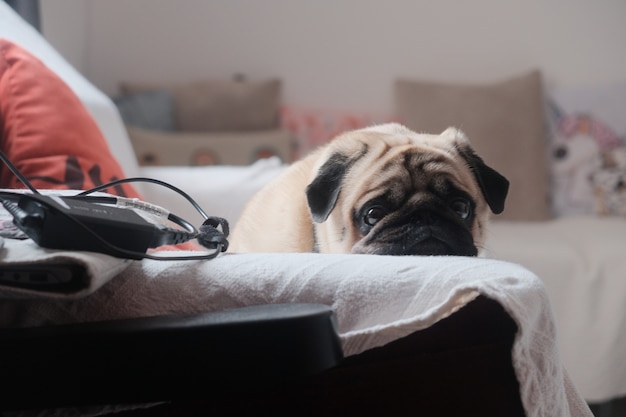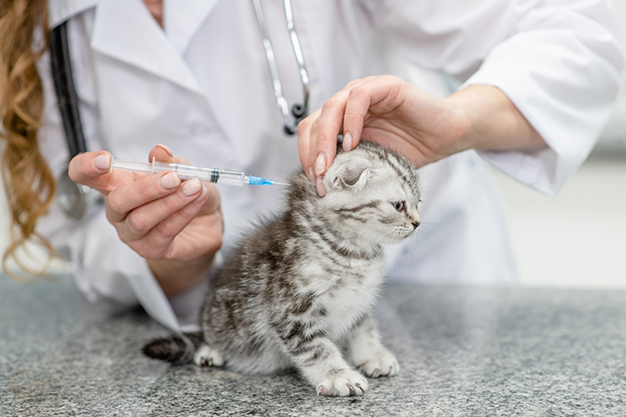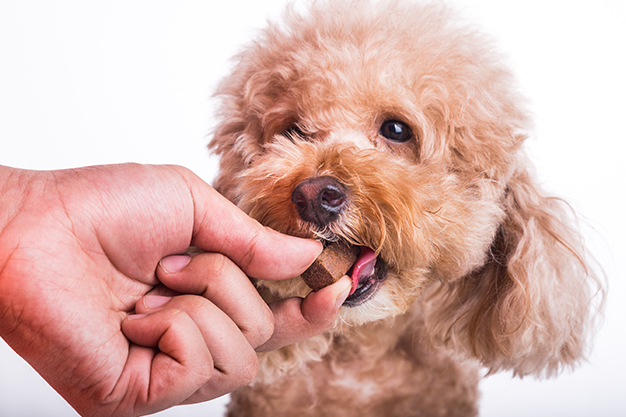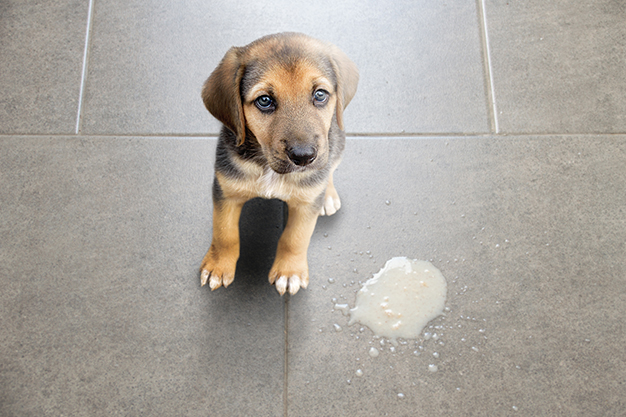Recognizing Digestive Issues in Pets: Signs and When to Call the Vet


Recognizing Digestive Issues in Pets: Signs and When to Call the Vet
Digestive issues such as vomiting and diarrhea in pets are among the most common concerns pet owners face, often causing stress and uncertainty about when to seek help. At Lotus Animal Hospital FU, located at 5215 Windward Parkway, Alpharetta, GA 30004, our veterinary team understands how quickly a minor stomach upset can turn into something that needs prompt attention. As a dedicated resource for pet parents in Alpharetta and surrounding communities, we are committed to guiding you through the signs of digestive distress, the causes behind these issues, and what you can expect when you visit our clinic for care.
This blog explores how to recognize digestive problems in your pet, explains common causes, discusses treatment options available through our comprehensive veterinary services in Alpharetta, and offers holistic approaches to support your pet’s digestive health. You will also learn when it’s time to schedule an appointment with our experienced veterinarians and how our in-house diagnostic capabilities can provide answers quickly. If you are searching for a vet near me who can handle both conventional and holistic pet digestive problems, you’ve found the right place.
To support your understanding, we will highlight how our in-house diagnostic laboratory can help identify the root cause of your pet’s symptoms, offering peace of mind when your pet needs it most.
Recognizing Digestive Problems in Pets: Signs to Watch For
When your pet isn’t acting like themselves, knowing the warning signs of digestive distress can help you act quickly. Digestive problems in pets may present as both obvious and subtle changes, and recognizing these early can make a significant difference in recovery.
Key symptoms include vomiting or regurgitation, which may appear as partially digested food or clear fluid. Diarrhea is another common sign, often ranging from soft, unformed stools to watery bowel movements. Other signs to watch for are decreased appetite, lethargy, abdominal discomfort, gurgling noises from the belly, and increased flatulence. Some pets may also strain to have a bowel movement or show signs of pain when touched around the abdomen.
If you notice blood in your pet’s vomit or stool, persistent vomiting or diarrhea lasting more than 24 hours, or signs of dehydration such as dry gums and sunken eyes, these warrant prompt attention. Additionally, weight loss, sudden changes in behavior, and loss of interest in food are concerning signals that your pet’s digestive system may be struggling.
These signs can often be more noticeable during certain times of year, such as after holiday celebrations or during seasonal changes when dietary indiscretions are common. If your pet is exhibiting any of these symptoms, especially if you are unsure of the cause, reaching out to a quality vet near me is an important first step toward recovery.
Understanding the Causes of Vomiting and Diarrhea in Pets
Digestive problems in pets can arise from a variety of sources, and understanding the potential causes can help you prevent future episodes. In many cases, mild stomach upset is the result of dietary indiscretion. Pets are naturally curious and may eat table scraps, spoiled food, foreign objects, or plants that irritate their gastrointestinal tract. Stress, sudden changes in diet, or overindulgence in treats can also lead to vomiting and diarrhea.
Infectious agents such as viruses, bacteria, or parasites are another common culprit, particularly in puppies and kittens or pets with compromised immune systems. Additionally, underlying medical conditions including pancreatitis, kidney disease, liver issues, or food allergies may be responsible for persistent digestive symptoms.
Certain medications, toxins, or exposure to harmful substances can result in acute gastrointestinal upset as well. In some cases, more serious concerns such as intestinal obstructions, tumors, or organ dysfunction can present as chronic vomiting and diarrhea in pets.
Because the list of potential causes is extensive, a thorough evaluation by a veterinarian near me is essential to determine the exact reason for your pet’s digestive upset. Our in-house diagnostic laboratory services in Alpharetta allow our veterinary professionals to run tests quickly, ensuring your pet receives appropriate care based on an accurate diagnosis.
Veterinary Diagnostics and Treatment Options in Alpharetta
When you bring your pet to Lotus Animal Hospital FU for digestive issues, our veterinarians begin with a detailed physical examination and a comprehensive history of your pet’s recent behavior, diet, and environment. This approach helps us narrow down the possible causes and determine the best diagnostic and treatment plan.
Our in-house diagnostic laboratory provides immediate access to bloodwork, fecal testing, and urinalysis. These tests can reveal infections, dehydration, organ dysfunction, or the presence of parasites. Additionally, digital radiology and ultrasound services are available to assess for obstructions, masses, or other structural abnormalities within the digestive tract.
Treatment approaches depend on the underlying cause of your pet’s symptoms. For mild cases caused by dietary indiscretion, supportive care such as hydration, a brief fasting period, and a bland diet may be recommended. More severe or persistent cases may require intravenous fluids, anti-nausea medications, antibiotics, or specific therapies tailored to the diagnosis.
At Lotus Animal Hospital FU, we are proud to offer both conventional and holistic treatment options. Integrative therapies such as acupuncture for pets can support digestive health, especially in cases where stress, chronic inflammation, or underlying systemic issues are at play. Our commitment to preventive care ensures that we not only treat your pet’s current symptoms but also work to prevent future episodes through regular wellness examinations.
If you are seeking pet diagnostics near me that provide fast results and a full spectrum of treatment options, our team is here to help.
Holistic and Preventive Care for Pet Digestive Health
Supporting your pet’s digestive health goes beyond treating symptoms. Preventive and holistic strategies play a key role in minimizing the risk of future digestive problems in pets.
Steps you can take at home include feeding a consistent, high-quality diet that is appropriate for your pet’s age and health status. Avoid giving table scraps or sudden changes in food, which can upset sensitive stomachs. Ensure that household toxins, plants, and non-food items are kept out of reach, especially for curious young pets.
Establishing a regular routine for meals and exercise can help reduce stress, a known contributor to vomiting and diarrhea in pets. For pets with chronic or stress-related digestive issues, our veterinarians may recommend integrative therapies such as acupuncture, which has been shown to support gastrointestinal health and promote relaxation. To learn more about how acupuncture can benefit your pet, visit our acupuncture services page.
Routine wellness examinations are another cornerstone of preventive care. These visits allow our veterinary team to monitor your pet’s overall health, catch early signs of digestive trouble, and provide guidance tailored to your pet’s unique needs. If you are looking for veterinary diagnostics in Alpharetta that include both traditional and holistic options, our team is dedicated to your pet’s wellbeing.
When to Seek Veterinary Care for Vomiting and Diarrhea
Knowing when to call the veterinarian is crucial when your pet is experiencing digestive problems. While occasional mild vomiting or a single episode of soft stool may not require immediate action, certain situations demand prompt attention from a qualified veterinary team.
You should schedule an appointment if your pet experiences vomiting or diarrhea that persists beyond 24 hours, shows signs of dehydration, has blood in their vomit or stool, becomes lethargic, or refuses food and water. Puppies, kittens, senior pets, or those with pre-existing health conditions are especially vulnerable and should be evaluated sooner rather than later.
If you are ever unsure whether your pet’s symptoms warrant veterinary attention, err on the side of caution and reach out to our team of veterinarians. Early intervention can prevent complications and ensure that your pet receives the care they need. Our wellness examination services in Alpharetta provide a comprehensive approach to evaluating and managing digestive health, giving you peace of mind during stressful times.
In all cases, keep in mind that timely care from a quality veterinary services near me can make a significant difference in your pet’s recovery and long-term health.
Supporting Your Pet’s Digestive Health: Next Steps
Digestive problems in pets can be unsettling, but with attentive care and the right support, most pets recover fully and return to their happy, healthy selves. At Lotus Animal Hospital FU, our veterinary professionals are committed to helping pet owners in Alpharetta and surrounding communities navigate these challenges with confidence. By recognizing the signs of digestive distress, understanding possible causes, and seeking timely veterinary diagnostics in Alpharetta, you can give your pet the best chance for a speedy recovery.
If your pet is showing signs of vomiting and diarrhea or any other digestive issue, don’t wait for things to worsen. Schedule an appointment with our compassionate team for a thorough wellness examination or to access our in-house diagnostic laboratory today. We invite you to experience the difference of a caring, integrative approach from a trusted vet near me, right here at 5215 Windward Parkway, Alpharetta, GA 30004. To book your visit, call (732) 915-3664 or visit our website at lotusanimalhospital.com.
Your pet’s digestive health is our top priority, and we look forward to partnering with you for a lifetime of wellness and comfort.
Disclaimer: This article is intended for informational purposes only and does not replace professional veterinary advice. If your pet is experiencing acute or severe symptoms, contact a veterinary professional immediately. For additional resources on pet digestive health, visit the American Veterinary Medical Association or consult with your local veterinarian.





















